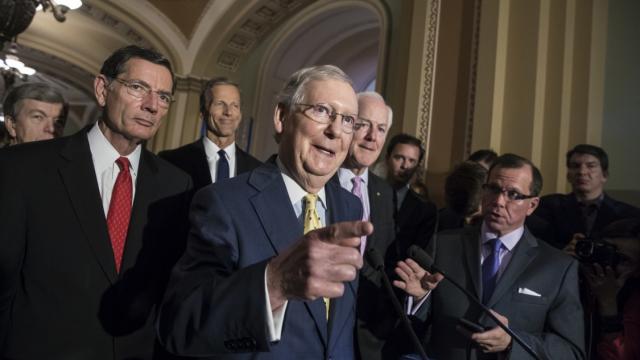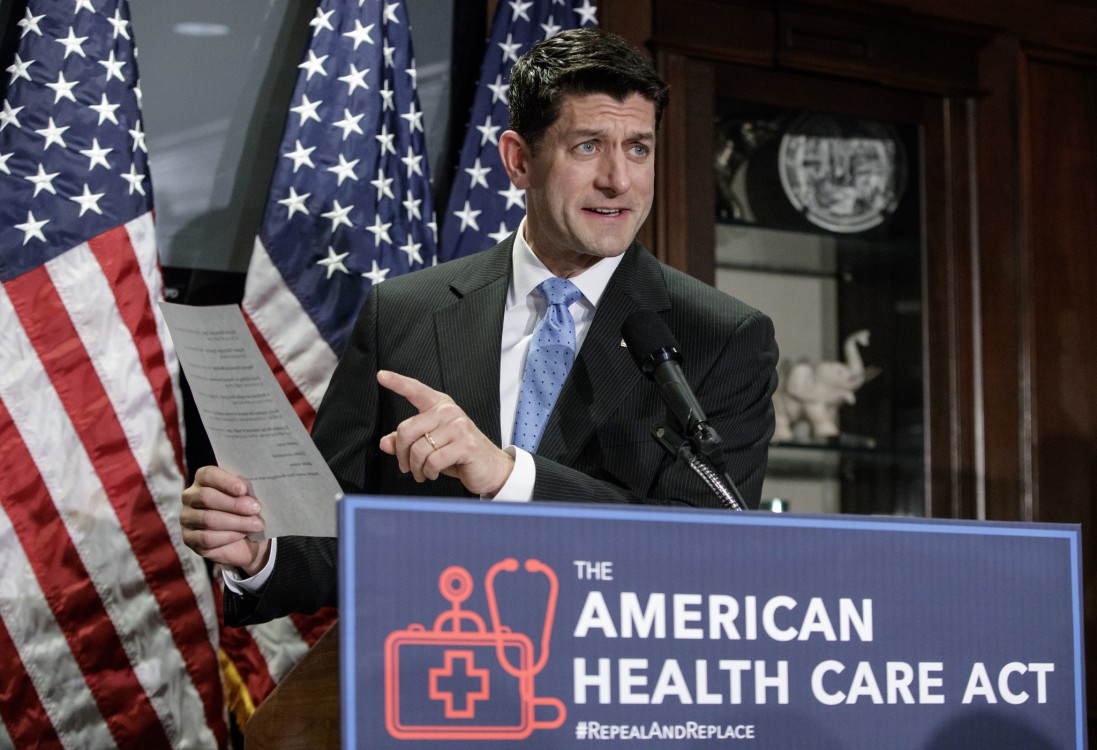
Now that Mitch McConnell has shown his hand, we know how the Senate would replace the Affordable Care Act – with essentially the same bill that passed the House in May. It’s not clear either measure will win full congressional approval, but in one sense it makes no difference. The GOP (whose House bill passed by three votes and with zero Democratic support) has already indicted itself as either criminally ignorant or casually hypocritical about the nature of health insurance and the central role government necessarily plays in it.
Here are a few money quotes from recent GOP townhalls with, shall we say, less-than-pleased constituents:
Rep. Tom MacArthur (N.J.): “Single-payer, or Medicare for all, means that there’s only one payer left who gets to decide what doctors get paid … It works in other small countries, not in countries of this size.”
Sen. Jeff Flake (Arizona): "I will continue to support, as much as I can, our free-market system of healthcare."
Rep. Raúl Labrador (Idaho): “Nobody dies because they don’t have access to healthcare … No, I do not believe healthcare is a basic right.”
Let’s take these in order. Mr. MacArthur is right on single-payer, a system in which government is the only (or the dominant) insurer. What he overlooks is that we already have a single-payer system, called Medicare, for folks 65 and over. And despite the term, it does not restrict providers to one payer; it allows private carriers to sell supplemental coverage.
As for the market power of a single-payer, yes, that’s precisely the point. A dominant national insurer would have greater leverage than individual insurers when negotiating prices with providers, which is one way to help contain costs. Another benefit: A government-run single payer has no incentive to deny coverage, a practice (known as “risk selection”) that has historically been standard procedure among for-profit insurers when sizing up people with pre-existing conditions – in other words, the people who most need health insurance.
The notion that single-payer works only in small countries is challenged by facts (to be fair, never a GOP strength). But we already know that’s not true. U.S. Medicare serves 57 million people, and Spain and the U.K. are no one’s idea of a small country.
To be sure, single-payer systems aren’t perfect, but perfection is an unreasonable standard. All healthcare systems require painful tradeoffs. If it were possible to create a system of unlimited resources it would have been done already.
In response to Sen. Flake’s free market: Healthcare is not an unfettered market, and no one should want it to be. Government accounts for 64 percent of all healthcare spending in the U.S., if you count the cost of subsidizing employer plans. If Sen. Flake is saying that we should end all government intervention in healthcare and let private purchasing power alone determine who receives it, let him have the courage of his free-market convictions and say so. Let’s see how that plays in his next campaign.
Let’s give Rep. Labrador a little benefit of the doubt: One hopes he meant that no one dies for lack of health insurance, not healthcare. Even If true, it’s at least partly because of public interventions – chiefly Medicaid, Medicare and the Veterans Health Administration – that wouldn’t exist in the GOP’s fantasy private market. In any event, there are studies (here and here, to name just two) that challenge his assertion.
Were any of these characters to argue that we don’t need government – only a well-functioning market – to provide, say, local policing, you’d see a surge in demand for pitchforks. Except for a few fringe libertarians, we all understand intuitively why the provision of critical goods and services isn’t left to the whims of the market. And yet that is precisely how Republican rhetoric suggests we should treat healthcare.
What you’re seeing here is GOP hypocrisy thrown into bold relief. Behind the stage props of party messaging and pro-market platitudes, most Republicans have to realize that there’s no way to achieve broad healthcare coverage without government involvement – just as they know that it’s easy to evangelize about unregulated markets when they know they’ll never have to live in one.
Follow the author Chris Gay on twitter @CgayNYC.
3 WAYS TO SHOW YOUR SUPPORT
- Log in to post comments













